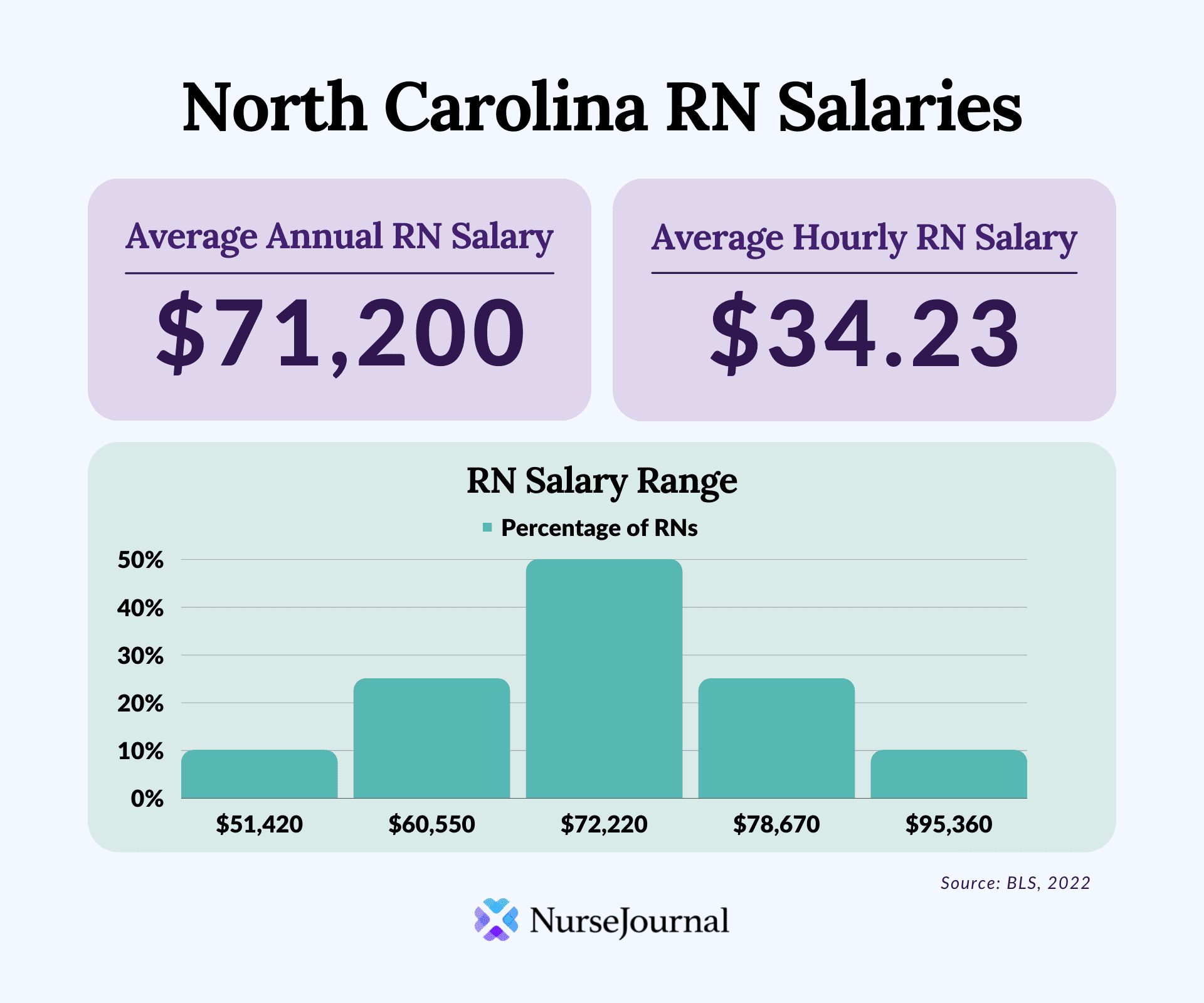North Carolina, a state with a diverse economy, offers a range of salary opportunities. While the average salary in the state provides a general overview, factors like industry, location, experience, and education significantly influence individual earnings.
Key Factors Influencing Salaries in North Carolina
1. Industry:
- Technology: The Research Triangle region (Raleigh-Durham-Chapel Hill) is a thriving tech hub, offering competitive salaries in software engineering, data science, cybersecurity, and other tech-related fields.1
- Healthcare: North Carolina boasts a robust healthcare industry, with numerous hospitals, pharmaceutical companies, and biotech firms.2 This translates into well-paying jobs for medical professionals, researchers, and administrative staff.
- Finance: While not as prominent as New York or Boston, Charlotte is a significant financial center, providing opportunities in banking, insurance, and investment.3
- Manufacturing: Traditional industries, particularly in the Piedmont Triad region, continue to contribute to the state’s economy. These industries offer a variety of roles, from skilled labor to management positions.
2. Location:
- Research Triangle: This region, with its strong academic and research institutions, offers higher-paying jobs, especially in tech and healthcare.
- Charlotte: As a major financial center, Charlotte offers competitive salaries in finance, banking, and corporate sectors.4
- Coastal Areas: Coastal cities like Wilmington and Outer Banks, while offering a lower cost of living, may have lower average salaries.
3. Experience and Education:
- Experience: As with most states, experience plays a crucial role in salary determination.5 More experienced professionals, particularly in high-demand fields, can command higher salaries.
- Education: Advanced degrees, especially in STEM fields, can significantly boost earning potential.
4. Cost of Living:
- While North Carolina’s cost of living is generally lower than many other states, factors like location and housing costs can vary.6 Urban areas like Charlotte and Raleigh-Durham tend to have higher costs of living compared to rural areas.
Tips for Maximizing Your Earnings in North Carolina
- Leverage Education and Certifications: Invest in your education and obtain relevant certifications to increase your market value. Advanced degrees and specialized certifications can open doors to higher-paying positions.7
- Network Strategically: Building strong relationships with professionals in your field can lead to valuable job opportunities and insights into salary trends.8 Attend industry conferences, join professional organizations, and use online platforms like LinkedIn to connect with potential employers and mentors.9
- Consider Remote Work: Explore remote work opportunities, which can expand your job search and potentially lead to higher salaries. Many companies in North Carolina are embracing remote work, particularly in tech and other knowledge-based industries.10
- Negotiate Effectively: Be prepared to negotiate your salary and benefits package. Research industry standards, practice your negotiation skills, and be confident in your value.
- Stay Updated on Industry Trends: Keep abreast of the latest trends and developments in your industry to remain competitive. Continuous learning and skill development can help you advance your career and increase your earning potential.11
- Explore High-Demand Industries: Consider pursuing careers in high-demand industries like technology, healthcare, and finance. These industries offer strong growth potential and competitive salaries.
By understanding the factors that influence salaries in North Carolina and implementing effective strategies, you can position yourself for success in the state’s diverse job market.




